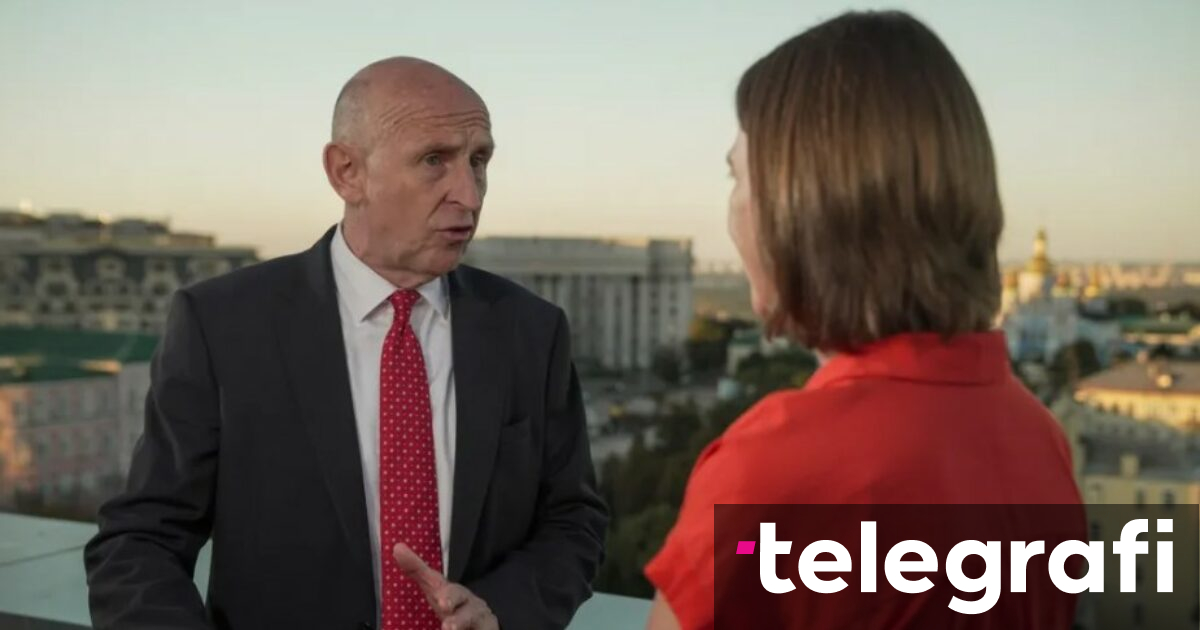The UK Defence Secretary has stated that his country and its allies are ready to support Ukraine ahead of negotiations to end the war, as well as to secure a final peace agreement.
On the eve of a summit in Paris, John Healey told the BBC in Kiev that Ukraine’s allies would “help secure the skies, secure the seas and secure the land” once a peace deal was reached.
And Russian President Vladimir Putin had conveyed a defiant message from China, vowing that its full-scale invasion could continue.
Healey suggested there was bravado in Putin’s words, insisting that Russia was under pressure.
He also praised US President Donald Trump, who said he had “brought Putin into talks” and “had not closed any options”, despite widespread criticism of the warm reception Trump gave the Russian leader last month in Alaska.
As of Tuesday, Trump said he was “disappointed” with Putin, but he has said this before.
He has also threatened to punish the Russian leader for his apparent refusal to end the war – or even to meet with Ukrainian President Volodymyr Zelensky for peace talks.
When asked on Wednesday whether the war in Ukraine could end soon, Putin said “there is a certain light at the end of the tunnel.”
“It seems to me that if common sense prevails, it will be possible to agree on an acceptable solution to end this conflict,” he said, before threatening: “If not, then we will have to solve all our tasks militarily,” he said.
He continued to list Russia’s maximalist demands as usual – including that authorities in Kiev end what he called discrimination against ethnic Russians – one of the accusations cited as a pretext for the full-scale invasion of its neighbor that he launched in February 2022.
As for the meeting with Zelensky, Putin seemed to scoff at the very idea – which Trump had said he was ready for.
“I have never ruled out the possibility of such a meeting. But does it make any sense? Let’s see,” Putin said in Beijing.
Zelensky could always go to Moscow to meet him, he said – an idea “consciously unacceptable,” the Ukrainian foreign minister was quick to point out.
Last week, French President Emmanuel Macron suggested that Putin was “playing” with Trump.
But John Healey stressed that the US president “has not ruled out any further action, including economic measures, to put more pressure on Putin.”
“We in the Coalition of the Willing, nations like the United Kingdom, are ready to put additional economic pressure on Putin. We are ready to provide additional assistance to Ukraine so that they can continue the war.”
“That’s why we’ve today spent £1 billion ($1.24 billion) of seized Russian assets, recycled into aid and military equipment for Ukraine. If you like, Putin’s dirty money returned with interest,” Healey added.
Today, Macron will host a meeting of the so-called Coalition of the Willing – a grouping of Ukraine’s allies committed to implementing any peace agreement.
A source at the Elysee, Macron’s office, has said that the group is now ready to offer security guarantees to Ukraine, awaiting only confirmation from the US that it will act as the final deterrent.
The proposed agreement includes continuing to train and supply Ukraine’s own military.
It also envisages European troops being deployed to Ukraine – in unspecified numbers – to deter any future Russian aggression – a signal that Ukraine can count on its allies’ “solidarity and full commitment”, the Elysee source said.
Such a deployment would require a ceasefire, the responsibility for which “falls on the Americans who are negotiating with the Russians.”
John Healey refused to give details, despite pressure, “because it will only make Putin wiser.”
The German government is also downplaying expectations for any major announcements at Thursday’s meeting.
For the time being, like Italy and other coalition members, Berlin has ruled out sending soldiers to Ukraine to secure any future peace on the ground.
A German government spokesman told the BBC that the priority at the moment was persuading Russia to agree to a ceasefire – which Putin has repeatedly refused.
